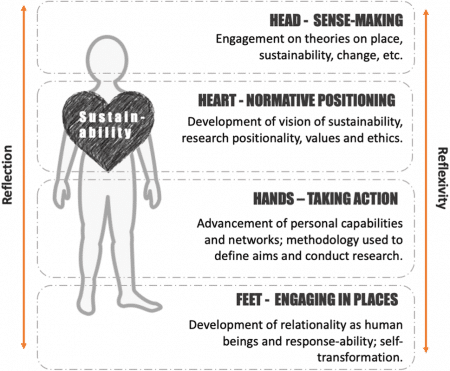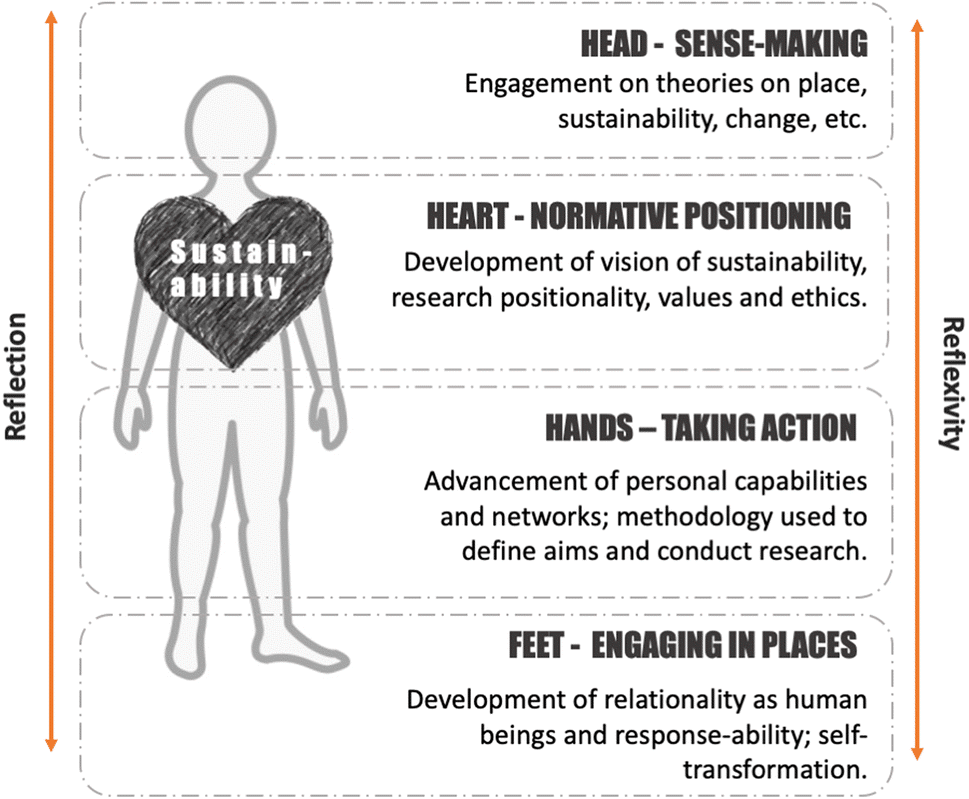
Lummina Horlings is Prof. Socio-spatial planning, Faculty of Spatial Sciences, University of Groningen, and co-coordinator of the SUSPLACE project; contact: l.g.horlings@rug.nl
‘Operationalising transformative sustainability science through place-based research: the role of researchers’ by Lummina Horlings, Marta Nieto-Romero, Siri Pisters and Katriina Soini is the 5th open access article published as part of the Special Feature: Exploring the Transformative Capacity of Place-Shaping Practices in the Sustainability Science.
Abstract
Among scholars in sustainability science, there is an increasing recognition of the potential of place-based research in the context of transformative change towards sustainability. In this research, researchers may have a variety of roles; these are determined by the researcher’s engagement with the subject, the inherent theoretical, normative and methodological choices he or she makes, the researcher’s ambitions in contributing to change, and ethical issues. This article explores the varied roles of research fellows within the European Marie Curie ITN research program on sustainable place-shaping (SUSPLACE). By analysing 15 SUSPLACE projects and reflecting on the roles of researchers identified by Wittmayer and Schäpke (Sustain Sci 9(4):483–496, 2014) we describe how the fellows’ theoretical positionality, methods applied, and engagement in places led to different research roles. The methodology used for the paper is based on an interactive process, co-producing knowledge with Early Stage Researchers (fellows) of the SUSPLACE consortium. The results show a range of place meanings applied by the fellows. Varied methods are used to give voice to participants in research and to bring them together for joint reflection on values, networks and understandings, co-creating knowledge. Multiple conceptualisations of ‘sustainability’ were used, reflecting different normative viewpoints. These choices and viewpoints resulted in fellows each engaging in multiple roles, exploring various routes of sustainable place-shaping, and influencing place-relations. Based on our findings we introduce a framework for the ‘embodied researcher’: a researcher who is engaged in research with their ‘brain, heart, hands and feet’ and who integrates different roles during the research process.
Keywords: Transformation, Sustainability, Place-based research, Place-shaping, Roles of researchers, Engagement

